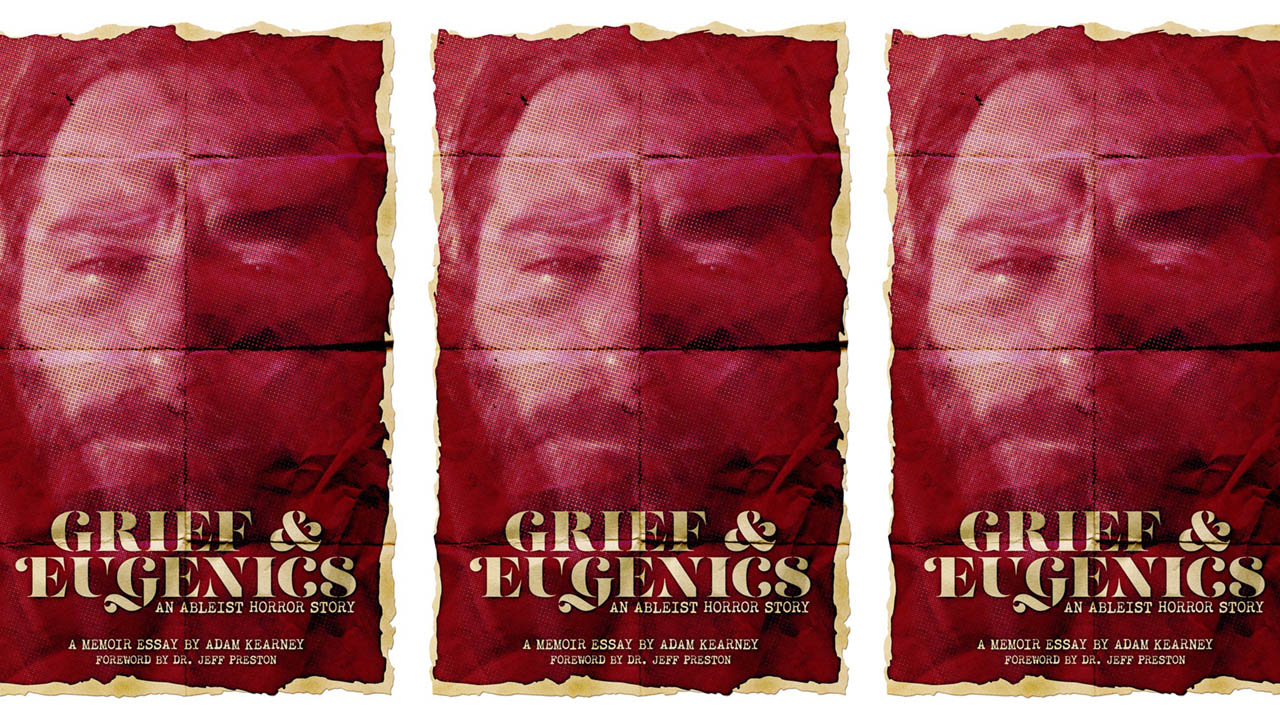Grief & Eugenics: An Ableist Horror Story, Part 13
 CREDIT: ADAM D. KEARNEY
CREDIT: ADAM D. KEARNEYIn this final installment, Adam asserts that disability is not the problem, but rather, the world around us and how it operates.
This article is the final part in a series of excerpts from Fanshawe grad Adam D. Kearney’s essay, Grief & Eugenics: An Ableist Horror Story.
Disability doula is a term I recently learned from Leah Lakshmi Piepzna-Samarasinha’s book The Future is Disabled, and it is exactly as it sounds. It is someone who assists in the transition when someone acquires disability. Something else that I have learned from her writing, as well as many others, is just how rich and diverse the disability community is. Folks with disability are a creative group of individuals who have had to learn to not rely on systems that have continually failed us. We have notebooks, blogs, text messages, emails and wherever else you store knowledge full of life hacks. We become natural problem solvers from having to do everything on our own outside the extremely limited resources the system offers us. I once had a laugh with a case worker of mine who suggested I duct tape my mobility device back together while I wait for government funding. We laughed because this wasn't the first time either of us had heard or said something like this.
We need to stop building dick shaped rockets, giving tax cuts to billionaires, destroying environmentally protected spaces, relying so heavily on single use products that just end up in our oceans and land fills, and start investing in our social and healthcare systems. It’s so common sense to say but we are so focused on and busy putting bandaids on things, we haven't stopped to think about how to fix the bigger problems. Our systems are not broken, they are operating exactly how they were designed to, to benefit rich old white men. Maybe the first step in the right direction is to stop seeing disability as the problem and see the changes we need to make in the world around us.
I keep the boxes which contain the ashes of Stuart and Jonas on a book shelf at the foot of my bed. They were symbols of the pain and misery I went through but now they serve as reminders of the future I want to be a part of. The future I am now trying to help foster and create. A place for people with disabilities to live and to live a life free from the shame others push onto them.
“As the people of Akwesasne know, the real measure of a community is determined not so much by the independence of its members as by the extent to which INTERDEPENDENCE has meaning for each individual living there.” From the book TE-WA-KWE-KON: Together As One.
The cover photo was taken on the one year anniversary of losing Jonas. I am not exactly sure why I took, or even kept the selfie until I started writing this essay. Ugly crying my face off. Laying flat on my back on my new roommate’s townhouse floor. Newly separated and struggling to understand how this affected the grief and connection I have for my boys. Listening to “My Name is Jonas” on my record player repeatedly. DRUNK. I would like to say this was my rock bottom, but as you have just read, it wasn’t. The Adam on the cover is not the same Adam that wrote this essay. I have my family and friends to thank for that. Thank you. Each and every single one of you.
Peace, Love & Understanding. Adam & Pogue (the dog).
This memoir essay was published as a zine in Jan. 2023. If you enjoy it and feel you would like to support the author, you can find a pay what you can PDF or purchase a physical copy at handcutcompany.com.
Editorial opinions or comments expressed in this online edition of Interrobang newspaper reflect the views of the writer and are not those of the Interrobang or the Fanshawe Student Union. The Interrobang is published weekly by the Fanshawe Student Union at 1001 Fanshawe College Blvd., P.O. Box 7005, London, Ontario, N5Y 5R6 and distributed through the Fanshawe College community. Letters to the editor are welcome. All letters are subject to editing and should be emailed. All letters must be accompanied by contact information. Letters can also be submitted online by clicking here.















